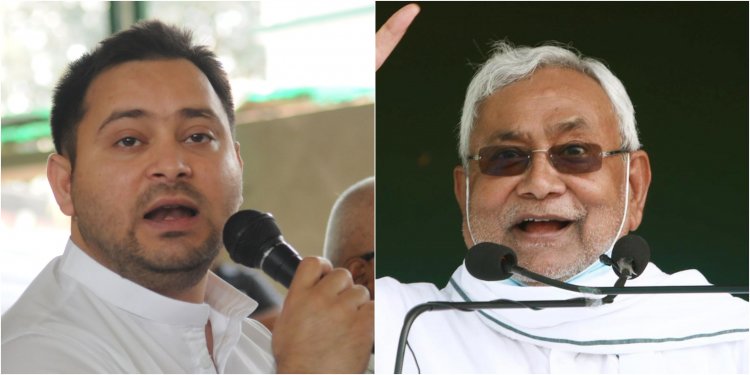Bihar Election Polls Crowd Shows Modi’s Popularity

India's first major elections since the beginning of the pandemic promise to be closely fought - and another test of Prime Minister Narendra Modi's popularity.
More than 70 million voters are eligible to cast their ballots for 243 assembly seats in the eastern state of Bihar. Polling began on Wednesday in the first of three phases and votes will be counted on 10 November.
During a year when more than 60 countries postponed voting, authorities in India went ahead with polls in Bihar, which has a population comparable to Japan.
Traditional forms of campaigning were suspended and virtual rallies were held initially. Polling stations and voting time have been increased to avoid congestion. But all this may well be too late: people and leaders alike have thrown caution to the wind in recent weeks and turned up enthusiastically - and unmasked - at huge public meetings.
Frustrated authorities have warned politicians against flouting Covid-19 safety rules without much success - there are concerns over a spike in infection in a state which has reported more than 200,000 Covid-19 cases so far.
One of India's poorest states, Bihar is a key electoral battleground. Its 124 million people are divided sharply along caste lines. With some two dozen home-grown parties, including 11 new ones, in the fray this time, the state is a crucible of alliance politics. "The multiplicity of political parties makes things very complicated in Bihar," Suhas Palshikar, a leading political scientist, told me.
Bihar is also the only big state in India's sprawling and politically febrile "Hindi-speaking heartland" that the BJP has not won on its own. Narendra Modi's BJP has been in power for more than a decade as a junior partner in an alliance with a regional party, the Janata Dal (United) or JD-U, led by Nitish Kumar.
Nitish Kumar is now one of Mr. Modi's closest allies. He has built his reputation as an astute populist who has provided basic amenities, curbed crime, and controversially banned liquor in a state blighted by crippling feudalism and endemic misrule. But jobs remain scarce and there is growing voter fatigue. This time, Mr. Kumar appears to have been overshadowed by Mr. Modi, a leader who possibly evokes more hope.
The election, according to political scientist Rahul Verma, will mark the beginning of the eclipse of an old guard of stalwart regional leaders - including Mr. Kumar - who have traditionally shaped Bihar's politics. The BJP clearly senses that its time may have come to lead a winning coalition. "The BJP has been slowly rising in Bihar on the back of the JD (U). A party which used to be a marginal player in Bihar has piggybacked on a regional partner and could well emerge as the single largest party this time," says Mr. Verma, a fellow at the Centre for Policy Research, a Delhi-based think tank.
Some believe the BJP's patchy electoral record in the states is not indicative of waning popularity. The party has lost states because of local leaders who appear to lack charisma besides Mr. Modi's larger-than-life, presidential personality. "The BJP started from a low base in many states, and the beginning of the party's domination has just begun. They will keep losing elections - that's the nature of competitive elections. But electorally, they are still some distance away from the peak," says Mr. Verma.
India's state elections are difficult to predict. Voters' choices are decided by caste loyalties, religion, the chemistry between the rulers and the ruled, and the performance of incumbent legislators. A leading opinion poll has predicted a clear win for the ruling coalition led by Mr. Kumar. But it also found that one in four voters were undecided about whom to vote for.















































